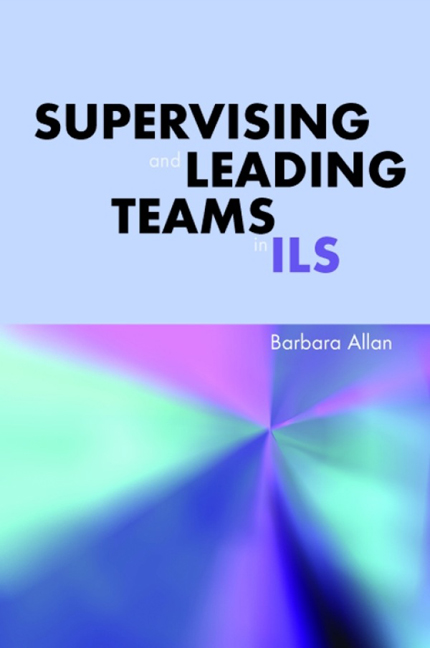Book contents
- Frontmatter
- Contents
- List of figures
- List of tables
- Acknowledgements
- Introduction
- 1 The role of team leaders in ILS
- 2 Leading and managing the team
- 3 Confident leadership and supervision
- 4 Motivation
- 5 Managing the work
- 6 Communication skills
- 7 Managing and leading complex teams
- 8 Human resource management
- 9 Workplace learning and training
- 10 Personal and professional development
- Further reading
- Index
9 - Workplace learning and training
Published online by Cambridge University Press: 08 June 2018
- Frontmatter
- Contents
- List of figures
- List of tables
- Acknowledgements
- Introduction
- 1 The role of team leaders in ILS
- 2 Leading and managing the team
- 3 Confident leadership and supervision
- 4 Motivation
- 5 Managing the work
- 6 Communication skills
- 7 Managing and leading complex teams
- 8 Human resource management
- 9 Workplace learning and training
- 10 Personal and professional development
- Further reading
- Index
Summary
Introduction
This chapter outlines approaches to managing workplace learning, and then identifies and explains the planned workplace learning cycle. This cycle may be used to implement any type of workplace learning activities, e.g. coaching sessions, demonstrations, training events. This is followed by an in-depth discussion of different types of workplace learning activities including e-learning, coaching, and learning through reflection.
Context of workplace learning
Team leaders in the 21st century face many challenges including the need to ensure that their team has the knowledge and skills required to produce high-quality work. We are working in a rapidly changing environment – one that is characterized by accelerating change, continuing information explosion and continuing changes to communication and information technologies. In addition, new approaches to living, working and learning as illustrated by the shift to a 24/7 society, the development of a mobile and global workforce, and the expansion of learning from traditional places such as schools, colleges and universities into the community and workplace have provided further challenges for information and library services.
In recent years there has been a shift in emphasis from the idea of training and development to the concept of lifelong learning and continuous professional development (CPD). What is training and how is it distinguished from concepts such as development, continuous or continuing professional development and lifelong learning? In practice, people often use these words interchangeably:
• Training. Often used to refer to learning that is associated with the development of very specific skills and behaviours that are required in the workplace. Training may take place through a wide range of activities, e.g. through instruction, coaching, on-the-job training and e-learning. It frequently involves attending specific training events organized by the employing organization or a professional association such as CILIP.
• Development. A broader term including all types of learning that are associated with personal and career development; these may or may not be work-related. It takes place through gaining a variety of work experience, attendance on education and training programmes, e.g. university or collegebased degree or diploma, and workplace activities such as mentoring.
• Continuous or continuing professional development (CPD). Relates to the idea that learning and development is an ongoing process and essential for individuals involved in any kind of professional practice.
- Type
- Chapter
- Information
- Supervising and Leading Teams in ILS , pp. 157 - 176Publisher: FacetPrint publication year: 2006



